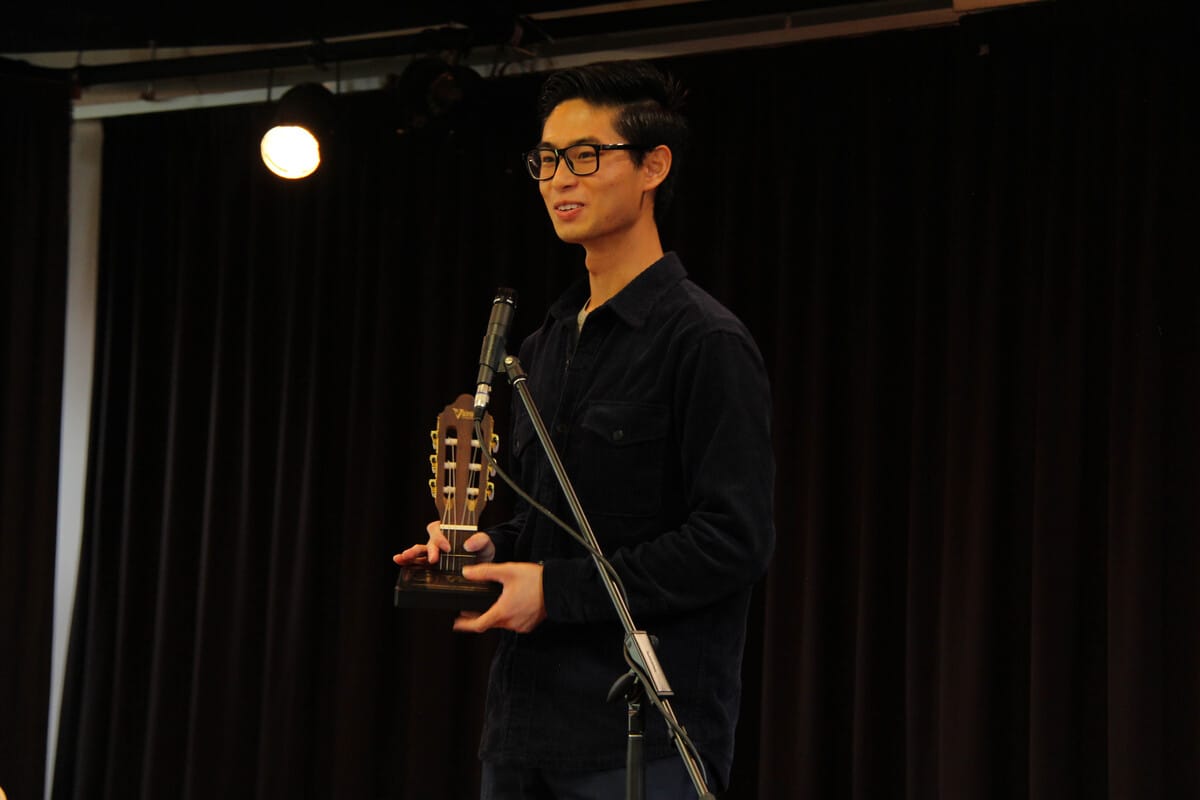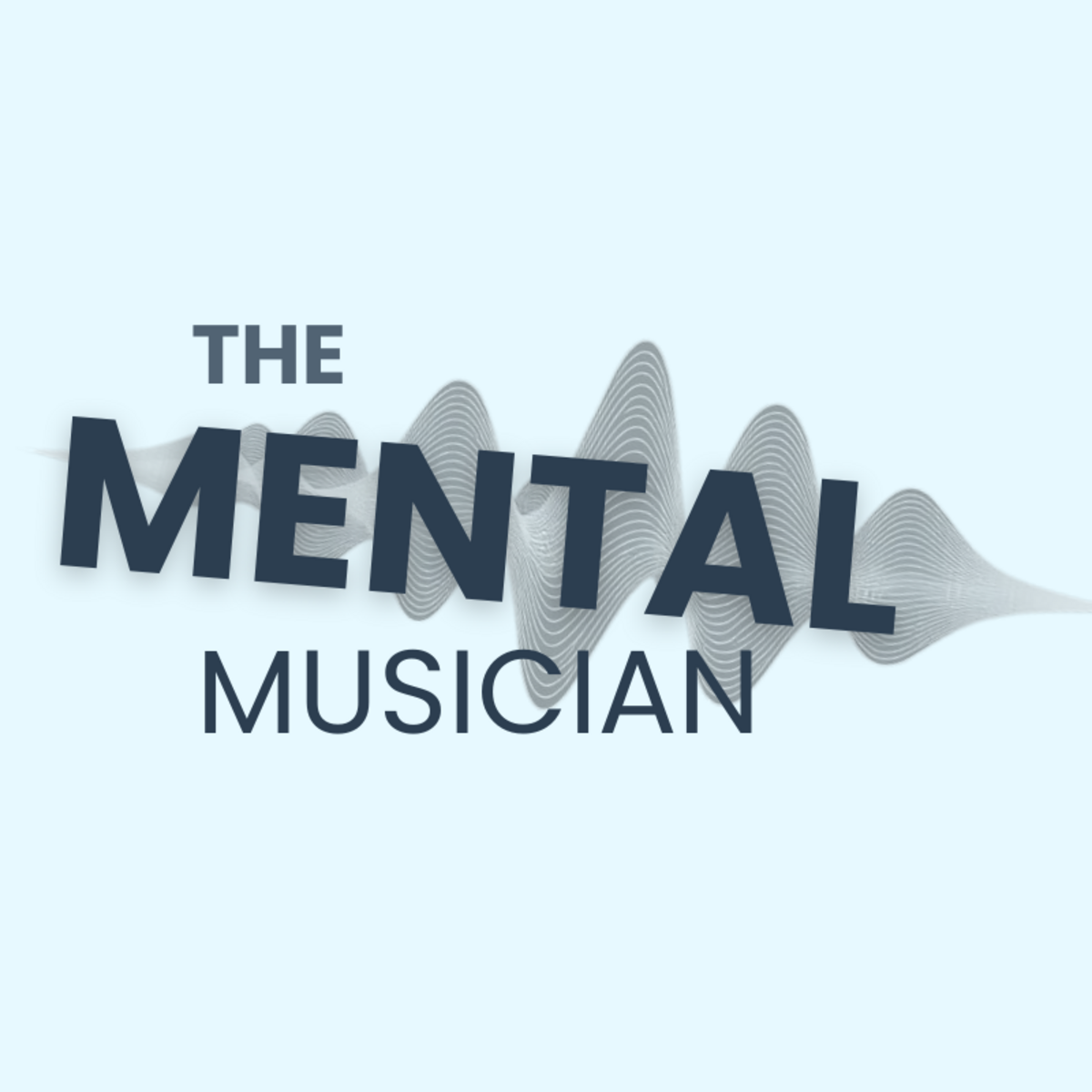You don’t have prove to anything.
But I get why you feel like you have to.
Because being a musician isn’t just about playing music.
It’s about surviving the constant pressure to justify your place.
You’re not just making songs—you’re making a case:
That your work is worth listening to.
That your life path is valid.
That your art matters.
And the music industry doesn’t make it easy.
You’re gigging week to week, never sure what’s next.
Some months you’re flush. Others, you’re scraping by.
You don’t always get to choose what you play. Or who hears it.

With all that uncertainty, you start to wonder:
Is it even worth it?
Is it worth chasing that moment when you finally get to play for thousands of people?
When your story, your music, your pain and joy help someone else survive theirs?
Is it worth it to finally top a playlist, release an album, or collaborate with the artists who once inspired you?
You’re told, "Follow your dreams!"
But rarely told what happens after the dream crushes you.
Still, you chase it.
Because you remember the reason you started.
That moment on stage.
That feeling when a crowd sings your lyrics back to you.
That sacred moment when your story helps someone survive theirs.
So yes—it is worth it.
But it comes at a cost.
And the cost is often mental.
Anxiety.
Burnout.
Comparison.
Feeling like no matter how hard you work, it’s still not enough.
I know, because I’ve lived it.
I still do.
I’ve spent 10+ years trying to prove I was “good enough”
To my mentors.
To my peers.
To myself.
I wasn’t chasing fame.
I just didn’t want to feel like I’d wasted my life.
I didn’t want to be the kid who gave up.
When I was 17, my music teacher asked what I wanted to do after high school.
I hesitated.
I told her maybe I’d go into teaching.
The truth is, I was scared to say I wanted to be a professional musician.
Because she believed in me.
She told me I was close—a “nearly” musician.
Not quite there yet. But I had potential.
She said I could be great. Maybe even as good as Tommy Emmanuel.
It was the first time anyone believed in me.
And the first time I felt like I had something to live up to.

But I was falling apart behind the scenes:
Diagnosed with anxiety and depression.
My mum was in hospital.
My best friend had lost someone.
And I had stopped going to school.
In my head, I was already failing. Already a “has-been.”
Just another kid with a dream who’d eventually give up and settle for a normal job.
I barely scraped through graduation.
I felt like a failure before I’d even begun.
So I told her I wanted to be a music teacher.
Not because I didn’t want to be a performer—
But because teaching felt safer.
Because it took the pressure off.
Less to prove.
Less to lose.
Over the next 10 years, I poured everything into being the best teacher I could be.
I studied how kids learn.
I learned how to talk to parents.
I helped kids enjoy music.
And I quietly embedded mental health tools into every lesson.
But deep down? There was this burning feeling I still had something to prove.
To her.
To my family.
To myself.
That I could make this work.
That being a teacher wasn’t a backup plan.
That I could build something meaningful—even if it wasn’t on a stage.
In that time, I:
Taught over 1,000 students
Opened two music schools
Bought my first car (a simple hyundai i30)
Paid my bills (mostly on time)
Put food on the table
No record deal. No viral hit. No tours.
But music stayed in my life.
Still..., that voice inside my head kept whispering:
"You were supposed to be something more."
Part of me still feels like I gave up on the dream.
And maybe that’s why my teacher’s words stuck with me.
When she said I was “nearly there,” it echoed the voices of all my friends and family who said:
“You’ll need a real job eventually.”
“Just play music as a hobby.”
“What about university?”
For 10 years, I’ve lived like I have a point to prove.
But maybe I don’t anymore.
I might not be performing at Carnegie Hall.
Or playing with Jacob Collier.
Or pulling millions of views on YouTube.
But I’m here.
I’m with my family.
I’m managing my mental health.
I’m building a community through this newsletter.
And I’m helping other musicians feel seen and supported.

I don’t have anything left to prove.
But there’s still more I want to share with the world.
There’s still more I want to explore, express, and give.
Not because I need to prove something to the world—
but because creating still means something to me.
There’s still a fire in me.
And I bet there’s one in you too.
You don’t owe the world proof.
But you do owe it to yourself to keep going.

Thank you for reading today’s newsletter.
I really hope it helped you in your own music journey—and maybe in life, too.
If anything here resonated, or if you just want to share your own story, I’d love to hear from you.
My inbox is always open.
Just by subscribing, you're already supporting this work more than you know.
But if you’d like to go one step further, I’ve set up a Patreon page:
👉 patreon.com/thementalmusician
I created it as a way to connect more deeply with readers—
to offer more support, more conversations, and more behind-the-scenes content.
All podcast episodes live there exclusively.
There are four membership tiers, but there’s also a free one—with plenty of perks if you’re just getting started.
Thank you for being here.
Thank you for keeping the faith in me.
And I’ll see you in the next one.
With love,
Brian
Unlock the Ultimate ChatGPT Toolkit
Struggling to leverage AI for real productivity gains? Mindstream has created a comprehensive ChatGPT bundle specifically for busy professionals.
Inside you'll find 5 battle-tested resources: decision frameworks, advanced prompt templates, and our exclusive 2025 AI implementation guide. These are the exact tools our 180,000+ subscribers use to automate tasks and streamline workflows.
Subscribe to our free daily AI newsletter and get immediate access to this high-value bundle.



